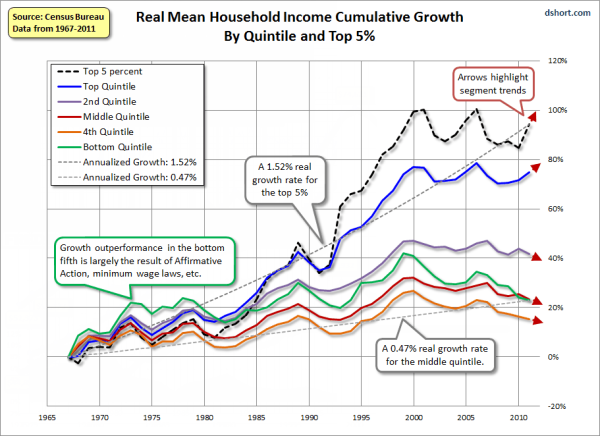In response to my last post calling out the Federal Reserve for engineering grotesque income inequality in America, some commentators have said that the Federal Reserve shouldn’t be blamed since there hasn’t been any meaningful inflation.
Before I continue with this post, let me say that even when relying on the official statistics, there has been massive redistribution. The average inflation rate over the past 20 years has been 2.3% while the average growth rate has been 2.53%. I realize most people who go through an economics program are not trained to think this way, but let’s remember that absent money printing, prices would fall by approximately the growth rate. In other words, if the money supply had simply remained fixed over the last 20 years, prices would have declined by about 2.5% per year (all other things equal).
Now that doesn’t mean business would have been suffering. The whole reason for the decline in prices would have been technological improvements reducing the cost of production and increasing supply. If you sell more at a lower price it’s possible to be more profitable than selling less at a higher price.
Think of what has been happening to prices in the technology sector. Prices have been falling due to production outstripping the growth of the money supply, yet tech businesses are flourishing. The same thing would have applied to the entire economy.
So because prices should have fallen by 2.5% and instead they rose by 2.3% that implies they were inflated by an average of 4.8% each year. What this means is that upwards of 5% of income each year (though probably less on average) has been siphoned away from the middle and working classes to the wealthy. Compound this over 20 years (or longer) and you get a pretty massive number for the amount of wealth that has been redistributed.
So even using the official statistics, I can rest my case. However, my intent with this post is to question the accuracy of the official statistics.







